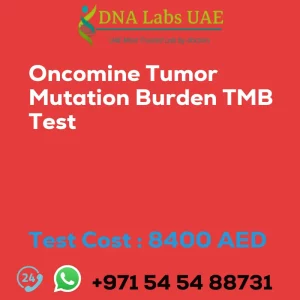AAAS Full Gene Sequence Analysis Allogrove Syndrome Test
Components: Sterile container/ Sterile Normal Saline Container/ EDTA Vacutainer (2ml)
Price: 7250.0 AED
Sample Condition: Peripheral blood/Amniotic Fluid/ Chorionic villi/ Cord blood
Report Delivery: 2-3 weeks
Method: Sanger Sequencing
Test type: Genetics
Doctor: Gynecologist
Test Department: Pre Test Information
AAAS Full Gene Sequence Analysis (Allogrove Syndrome) can be done with a Doctors prescription. Prescription is not applicable for surgery and pregnancy cases or people planning to travel abroad.
Test Details
Allogrove Syndrome is a rare genetic disorder that affects the immune system. It is caused by mutations in the NFKB2 gene, which provides instructions for making a protein that is involved in the regulation of immune system function. The specific mutations that cause Allogrove Syndrome result in the production of a truncated or abnormal protein that disrupts normal immune system function.
People with Allogrove Syndrome may have recurrent infections, particularly of the respiratory and gastrointestinal tracts. They may also have autoimmune disorders, such as rheumatoid arthritis or lupus, and an increased risk of developing lymphoma.
Diagnosis of Allogrove Syndrome is typically made through genetic testing, which can identify the specific NFKB2 mutations. Treatment may involve antibiotics to manage infections, immunoglobulin replacement therapy to boost the immune system, and other supportive measures. Gene therapy and bone marrow transplantation may also be potential treatment options.
It is important to note that the information provided here is for educational purposes only and should not be used as a substitute for professional medical advice. If you have any concerns about your health or the health of a loved one, please consult a healthcare provider.
| Test Name | AAAS Full Gene Sequence Analysis Allogrove Syndrome Test |
|---|---|
| Components | Sterile container/ Sterile Normal Saline Container/ EDTA Vacutainer (2ml) |
| Price | 7250.0 AED |
| Sample Condition | Peripheral blood\/Amniotic Fluid\/ Chorionic villi\/ Cord blood |
| Report Delivery | 2-3 weeks |
| Method | Sanger Sequencing |
| Test type | Genetics |
| Doctor | Gynecologist |
| Test Department: | |
| Pre Test Information | AAAS Full Gene Sequence Analysis (Allogrove Syndrome) can be done with a Doctors prescription. Prescription is not applicable for surgery and pregnancy cases or people planing to travel abroad. |
| Test Details |
Allogrove Syndrome is a rare genetic disorder that affects the immune system. It is caused by mutations in the NFKB2 gene, which provides instructions for making a protein that is involved in the regulation of immune system function. The specific mutations that cause Allogrove Syndrome result in the production of a truncated or abnormal protein that disrupts normal immune system function.
People with Allogrove Syndrome may have recurrent infections, particularly of the respiratory and gastrointestinal tracts. They may also have autoimmune disorders, such as rheumatoid arthritis or lupus, and an increased risk of developing lymphoma.
Diagnosis of Allogrove Syndrome is typically made through genetic testing, which can identify the specific NFKB2 mutations. Treatment may involve antibiotics to manage infections, immunoglobulin replacement therapy to boost the immune system, and other supportive measures. Gene therapy and bone marrow transplantation may also be potential treatment options.
It is important to note that the information provided here is for educational purposes only and should not be used as a substitute for professional medical advice. If you have any concerns about your health or the health of a loved one, please consult a healthcare provider. |








